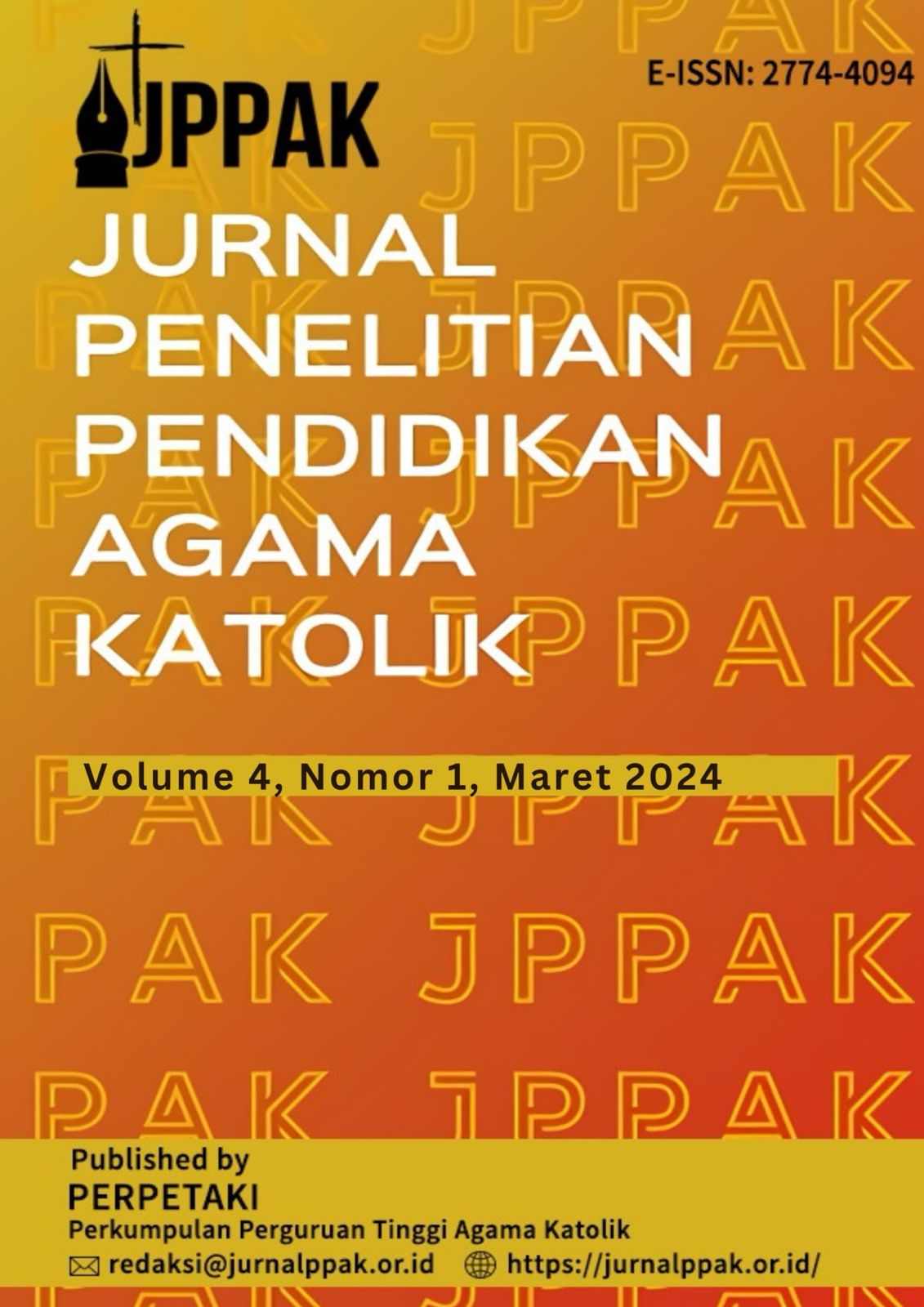Kebangkitan Yesus Menurut Injil Lukas 24:1-49 dan Implikasinya Bagi Gereja Masa Kin
DOI:
https://doi.org/10.52110/jppak.v4i1.128Keywords:
The Church Today, Implication, The resurrection of Jesus, Luke 24:1-49Abstract
The resurrection of Jesus holds significant importance for
Christians, as it represents his triumph over sin, death, and
darkness, offering the promise of eternal life to believers. This
event is central to the Christian faith, symbolizing the
transformative power it holds. While the Church is tasked with
carrying out its five pillars, many struggle to grasp and apply
these responsibilities in the modern world. This article delves
into the meaning of Jesus' resurrection, as described in Luke
24:1-49, and its relevance for the Church today. Utilizing a
qualitative approach with a literature study, the findings reveal
that Jesus' resurrection is characterized by an empty tomb
and his repeated appearances to the disciples. The
resurrection signifies the Church's mission to proclaim this
event, transcend spiritual existence into eternity, and demand
faithfulness in God. The implications of Jesus' resurrection for
the Church today can be fulfilled through the five tasks of the
Church: communion or koinonia, ministry or diakonia,
preaching or kerygma, sanctification or liturgia, and witness or
martyria. Demonstrating faithfulness in these duties serves as
a testament to the proclamation of Jesus' resurrection.
Downloads
##submission.downloads##
Submitted
Accepted
Published
How to Cite
Issue
Section
License
Copyright (c) 2024 Hironimus Resi, Teresia Noiman Derung

This work is licensed under a Creative Commons Attribution-ShareAlike 4.0 International License.
Copyright Notice and Permissions
Jurnal Penelitian Pendidikan Agama Katolik offers immediate open access to all its content on the principle to make researches freely available to the public, especially to the scholars, to support greater global exchanges of knowledge. This journal encourages all scholarly authors to allow their research openly available, free access and without time restrictions.
All articles published Open Access will be immediately and permanently free for everyone to read and download. Under the CC BY-SA 4.0 license, authors retain ownership of the copyright for their article, however authors grant others permission to use the content of publications in Jurnal Penelitian Pendidikan Agama Katolik (JPPAK) in whole or in part provided that the original work is properly cited. Users (redistributors) of Jurnal Penelitian Pendidikan Agama Katolik (JPPAK) are required to cite the original source by including at least: the full title of the article, the author's or authors' full name(s), JPPAK as the initial source of publication, year of publication and volume number using a propriate citing method.
Copyright encompasses exclusive rights to reproduce and deliver the article in all form and media, including reprints, photographs, microfilms and any other similar reproductions, as well as translations. The reproduction of any part of this journal, its storage in databases and its transmission by any form or media, such as electronic, electrostatic and mechanical copies, photocopies, recordings, magnetic media is prohibited without consent of Jurnal Penelitian Pendidikan Agama Katolik (JPPAK).
Jurnal Penelitian Pendidikan Agama Katolik (JPPAK) is licensed under a Creative Commons Attribution Share-Alike 4.0 International. (CC BY-SA 4.0)
Authors who publish with Jurnal Penelitian Pendidikan Agama Katolik (JPPAK) agree to the following terms:
- Authors retain copyright and grant the journal right of first publication with the work simultaneously licensed under a Creative Commons Attribution Share-Alike 4.0 International (CC BY-SA 4.0) license that allows others to share the work with an acknowledgement of the work's authorship and initial publication in this journal.
- Authors are able to enter into separate, additional contractual arrangements for the non-exclusive distribution of the journal's published version of the work (e.g., post it to an institutional repository or publish it in a book), with an acknowledgement of its initial publication in this journal.
- Authors are permitted and encouraged to post their work online (e.g., in institutional repositories or on their website) after the publication on JPPAK, as long as it not published on other OJS for it will be treated as plagiarism by plagiarism checker apps. It can lead to productive exchanges, as well as earlier and greater citation of published work (See The Effect of Open Access).












